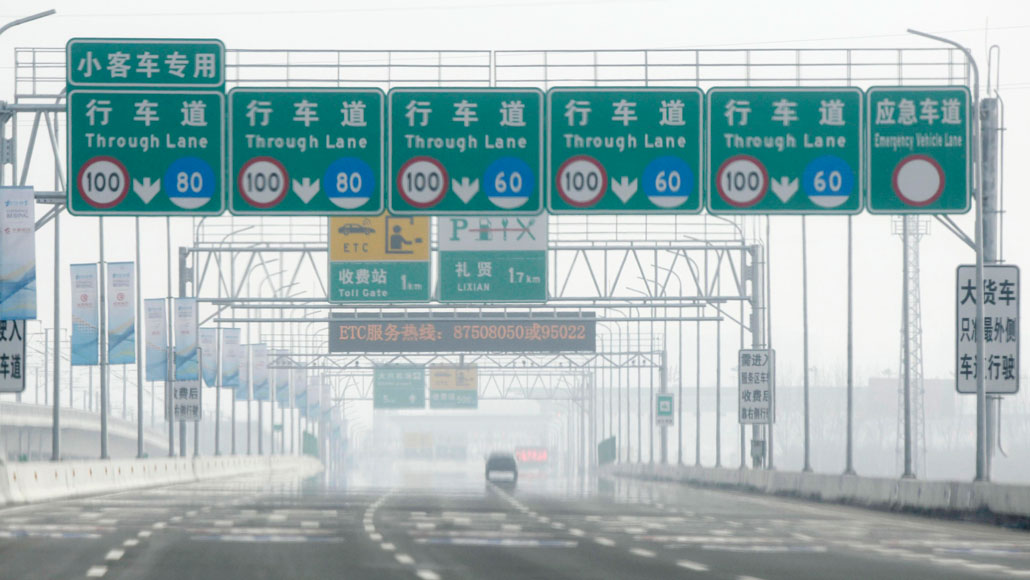Travel bans have barely slowed the coronavirus’s spread
It will take other public health interventions to manage the epidemic, a new study says

The highway leading to one of Beijing’s international airports was nearly empty on February 21 due to flight restrictions. Stopping flights to and from China only briefly delayed the international spread of COVID-19, researchers say.
Kyodo/AP images








